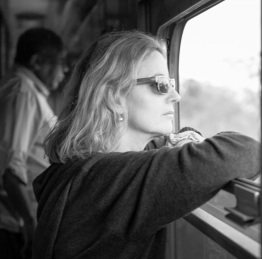Book Series Editors

Dr. Teresa Langle de Paz is co-founder and co-director of the UNESCO Chair on Gender, Wellbeing and Culture of Peace in the Department of Gender and Women’s Studies at the University of Wisconsin, Madison (USA) (www.unesco.gws.wisc.edu). She is currently the director of Phare Nador at the Foundation Women for Africa in Spain (www.mujeresporafrica.es), an institution devoted to the promotion of African women’s leadership and empowerment, where she is also a member of the Advisory Board. She is also engaged in several academic institutes as a member of the Executive Councils at Autonomous University and Complutense University of Madrid, Spain.
She has a Doctorate in Philosophy from Brown University and has been a professor of Early Modern Spanish Literature and Feminist Theory at Lawrence University and the University of Houston in the US and at Complutense University, International Menéndez Pelayo University, and Jaume I University in Spain. She has published on Early Modern feminism and Feminist Theory in top scientific journals, has edited various books on diverse feminist topics, and is the author of two monographic books on feminist theory entitled La urgencia de vivir. Teoría feminista de las emociones (Barcelona: Anthropos, 2018)—Urgent Living. Feminist Theory of Emotions—and La rebelión sigilosa.
El poder transformador de la emoción feminista (Col. Akademia. Barcelona: Icaria, 2011)
—The Stealthy Rebellion. The Transformational Power of Feminist Emotion.
Contact: langledepaz@wisc.edu – tlangledepaz@mujeresporafrica.es
She has a Doctorate in Philosophy from Brown University and has been a professor of Early Modern Spanish Literature and Feminist Theory at Lawrence University and the University of Houston in the US and at Complutense University, International Menéndez Pelayo University, and Jaume I University in Spain. She has published on Early Modern feminism and Feminist Theory in top scientific journals, has edited various books on diverse feminist topics, and is the author of two monographic books on feminist theory entitled La urgencia de vivir. Teoría feminista de las emociones (Barcelona: Anthropos, 2018)—Urgent Living. Feminist Theory of Emotions—and La rebelión sigilosa.
El poder transformador de la emoción feminista (Col. Akademia. Barcelona: Icaria, 2011)
—The Stealthy Rebellion. The Transformational Power of Feminist Emotion.
Contact: langledepaz@wisc.edu – tlangledepaz@mujeresporafrica.es
|
Deep politics could challenge the status quo. Examining everyday politics and reconceptualizing the position of the citizen, consider that acting on social representations might help the change process to address social hierarchies and inequalities. Our institutional systems do not tolerate critical examination but rather support conformity, norms, standards and obedience. The goal of a deep activism is to “removing ourselves from mental slavery…and enter into a humanist inquiry project that employs imagination to foster change” (Andrew Gitlin, p.22, in the Educational Researcher). Everyday politic is grounded in ruled relations, it shapes “how we see people, our relations with those different from ourselves, and the conclusions that we draw about those relationships” (p.15). Deep activism, rather than focusing on resisting the reproduction of hierarchies, centers on a freedom quest. It uses “imagination to redefine normative categories” (p.16), thereby initiating a process that can create a new terrain for equality. Thus deep activism links aesthetics with inquiry as a living process. Its commitment to social justice manifests through aesthetics to envision and create alternative imaginaries.
|
Moral imagination provides the mythic ferment of the future, its inquiry process paints the new possibilities. Dream/critique forms political humanism and stimulates “our ethical potential to separate ourselves from the seduction of everyday politics” (p.17). It moves in the direction described by Marcuse to create “a revolutionary language that can break the spell of the established and the establishment of everyday politics” (p.18). In this process, what appears crucial is to step for a while outside one’s culture to establish an ethical distance vis-à-vis everyday judgment, as conformism is imposed by a culture that uses the instruments of assertiveness to make its claim and produce authority, social hierarchies, power centralization, and delineate the margins of cultural acceptability. Deep activism, then, fits with “the effort to break the power of facts over the world, and to speak the language of those who establish, enforce and benefit from the facts” (Marcuse, 1960, p.x, in Gitlin, p. 18). It defines a new relationship with the world. It goes together with new, more interactional and open ways of expression. In this process, hope and love constitute non-foundational (i.e. non-universalist) foundations “at the heart and soul of humanness” (p.23).
|



